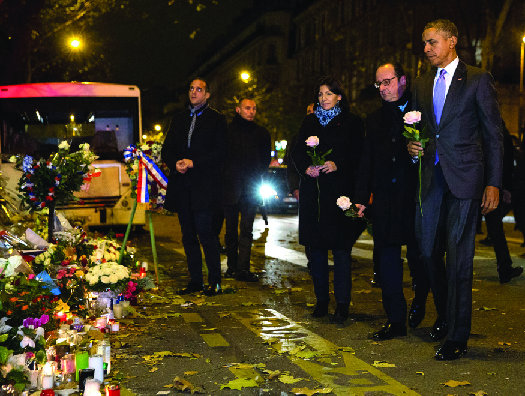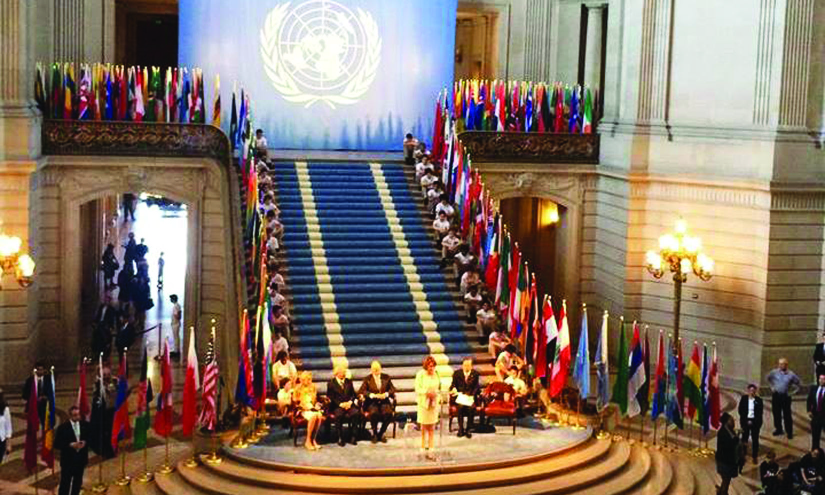| << Chapter < Page | Chapter >> Page > |
Today, in the post–Cold War era, many parts of Europe are politically more free than they were during the years of the Soviet bloc, and there is less fear of nuclear war than when the United States and the Soviet Union had missiles pointed at each other for four straight decades. However, despite the mostly stabilizing presence of the European Union (EU), which now has twenty-eight member countries, several wars have been fought in Eastern Europe and the former Soviet Union. Moreover, the EU itself faces some challenges, including a vote in the United Kingdom to leave the EU, the ongoing controversy about how to resolve the national debt of Greece, and the crisis in Europe created by thousands of refugees from the Middle East.
Carefully planned acts of terrorism in the United States, Asia, and Europe have introduced a new type of enemy into the balance of power equation—nonstate or nongovernmental organizations, such as al-Qaeda and ISIS (or ISIL), consisting of various terrorist cells located in many different countries and across all continents ( [link] ).

The fourth main goal of U.S. foreign policy is the protection of human rights and democracy. The payoff of stability that comes from other U.S. foreign policy goals is peace and tranquility. While certainly looking out for its own strategic interests in considering foreign policy strategy, the United States nonetheless attempts to support international peace through many aspects of its foreign policy, such as foreign aid, and through its support of and participation in international organizations such as the United Nations, the North Atlantic Treaty Organization (NATO), and the Organization of American States.
The United Nations (UN) is perhaps the foremost international organization in the world today. The main institutional bodies of the UN are the General Assembly and the Security Council. The General Assembly includes all member nations and admits new members and approves the UN budget by a two-thirds majority. The Security Council includes fifteen countries, five of which are permanent members (including the United States) and ten that are nonpermanent and rotate on a five-year-term basis. The entire membership is bound by decisions of the Security Council, which makes all decisions related to international peace and security. Two other important units of the UN are the International Court of Justice in The Hague (Netherlands) and the UN Secretariat, which includes the Secretary-General of the UN and the UN staff directors and employees.
One of the unique and challenging aspects of global affairs is the fact that no world-level authority exists to mandate when and how the world’s nations interact. After the failed attempt by President Woodrow Wilson and others to formalize a “ League of Nations ” in the wake of World War I in the 1920s, and on the heels of a worldwide depression that began in 1929, came World War II, history’s deadliest military conflict. Now, in the early decades of the twenty-first century, it is common to think of the September 11 terrorist attacks in 2001 as the big game-changer. Yet while 9/11 was hugely significant in the United States and abroad, World War II was even more so. The December 1941 Japanese attack on Pearl Harbor (Hawaii) was a comparable surprise-style attack that plunged the United States into war.
The scope of the conflict, fought in Europe and the Pacific Ocean, and Hitler’s nearly successful attempt to take over Europe entirely, struck fear in minds and hearts. The war brought about a sea change in international relations and governance, from the Marshall Plan to rebuild Europe, to NATO that created a cross-national military shield for Western Europe, to the creation of the UN in 1945, when the representatives of fifty countries met and signed the Charter of the United Nations in San Francisco, California ( [link] ).

Today, the United Nations, headquartered in New York City, includes 193 of the 195 nations of the world. It is a voluntary association to which member nations pay dues based on the size of their economy. The UN’s main purposes are to maintain peace and security, promote human rights and social progress, and develop friendly relationships among nations.
Follow-up activity: In addition to facilitating collective decision-making on world matters, the UN carries out many different programs. Go to the UN website to find information about three different UN programs that are carried out around the world.

Notification Switch
Would you like to follow the 'American government' conversation and receive update notifications?